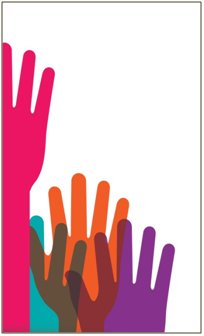 Registration is open for the Department of Behavioral Health 2014 Summit on Evidence-Based Programs for Children, Youth and Families on October 8, 2014, at the Walter E. Washington Convention Center in Washington, DC. Evidence-Based Programs refer to therapeutic practices shown to improve a child’s functioning in the home, school or community
Registration is open for the Department of Behavioral Health 2014 Summit on Evidence-Based Programs for Children, Youth and Families on October 8, 2014, at the Walter E. Washington Convention Center in Washington, DC. Evidence-Based Programs refer to therapeutic practices shown to improve a child’s functioning in the home, school or community
This year’s theme, “Now is the Time: Promoting and Implementing Evidence-Based Solutions for Behavioral Health”, will focus on the expansion of evidence-based programs for children, youth and families throughout the District of Columbia.
The all-day conference brings together practitioners from the District government and the community/private sector, child advocates and policy makers to learn, share, and shape the future of evidence-based practices in the District. For the first time, the Summit will include a focus on developing youth leaders ages 14-25 years old, sustaining youth led organizations, and supporting youth expression through the arts. This year’s Summit also will introduce a new Evidence-Based Program to address co-occurring mental health and substance use disorders among youth.
Summit attendees can expect to:
Gain valuable support, guidance, and tools utilized by program experts to help agencies successfully implement these programs and keys to overcoming barriers to access.
Be a part of the collaboration among peers invested in the promotion and sustainability of evidence-based programs.
Receive continuing education credits!
Keynote Speakers

Beth A. Stroul, M.Ed., President, Management & Training Innovations, Inc., and co-author of “A System of Care for Children and Adolescents with Severe Mental Emotional Disturbances”.

Bryan Samuels, Executive Director of Chapin Hall at the University of Chicago and former Commissioner of the Administration on Children, Youth and Families at the U.S. Department of Health and Human Services.
2014 SUMMIT TRACKS
*NEW* Youth Track (Will address ages 14-25)
Developing Youth Leadership and Supporting Youth Engagement. This track will address: Youth leadership development, Supporting and sustaining youth led organizations, Sustaining youth voice, Supporting youth expression through the arts, Developing youth empowerment tools including youth advocacy skills.
Evidence-Based Practice Provider, Administrators and Supervisor Support
This track identifies multiple strategies and resources for creating supportive organizational culture, necessary to support the successful implementation of EBPs. Three major areas of focus are: a) staff training and coaching, b) agency -wide and community-education that features problem-based learning approaches to support the introduction and utilization of evidence-based practice, and c) the modification of agency cultures to support and sustain evidence-based practice.
Data-Driven Decision Making
Learn about Assessment strategies, data tracking and fidelity monitoring of current evidence-based programs and how this data is used to improve practice in the District.
Cross Systems Collaboration
Children, Youth and Families engaged in the Behavioral Health system are often also engaged with other public agencies. Collaboration between and among agencies improves service delivery and the experiences of children and families who deal with multiple organizations. This track contains resources and information about collaboration among public human service agencies.
In the District of Columbia, hundreds of youth currently benefit from Evidence-Based Programs provided by specially trained mental health providers. Services include treatment for children and youth who experience violence and trauma; therapy that focuses on improving the quality of the parent-child relationship, and psychotherapy that addresses the unique needs of children with depression, behavior problems and other difficulties related to traumatic life experiences.
For more information about Evidence-Based programs, please call the 24 hour Access Helpline 1-888-793-4357.


